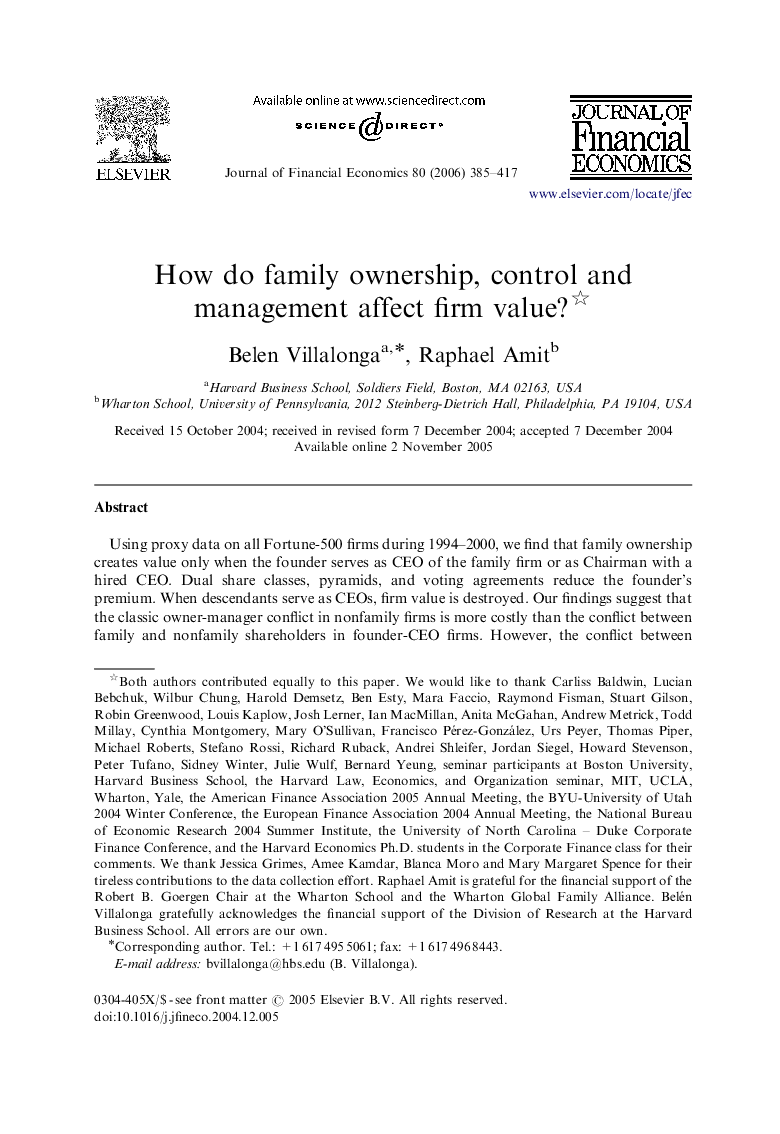| Article ID | Journal | Published Year | Pages | File Type |
|---|---|---|---|---|
| 960286 | Journal of Financial Economics | 2006 | 33 Pages |
Abstract
Using proxy data on all Fortune-500 firms during 1994–2000, we find that family ownership creates value only when the founder serves as CEO of the family firm or as Chairman with a hired CEO. Dual share classes, pyramids, and voting agreements reduce the founder's premium. When descendants serve as CEOs, firm value is destroyed. Our findings suggest that the classic owner-manager conflict in nonfamily firms is more costly than the conflict between family and nonfamily shareholders in founder-CEO firms. However, the conflict between family and nonfamily shareholders in descendant-CEO firms is more costly than the owner-manager conflict in nonfamily firms.
Keywords
Related Topics
Social Sciences and Humanities
Business, Management and Accounting
Accounting
Authors
Belen Villalonga, Raphael Amit,
